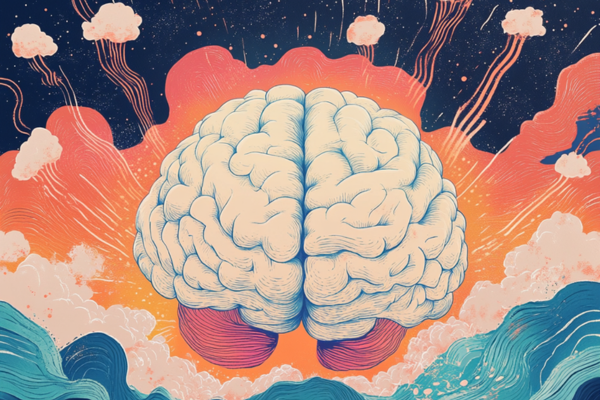When we think of trauma, we often think of the emotional wounds that it leaves behind. What if that emotional wound goes deeper than that and leaves someone stuck at the emotional age of their trauma?
The idea of an emotional time freeze, or the concept that traumatic events can stop emotional development, and people will continue to feel and react as they did at the time of the trauma, is one of the ideas.
But is this really possible? Can anyone get stuck at the age of their trauma? We take a look at the research that underlies this phenomenon.
The Concept of Emotional Time Freeze
It’s nothing new that trauma can freeze emotional development. Psychology states that unresolved trauma can stop people from growing emotionally.
A traumatic experience can disrupt the normal development and growth process so that those affected by trauma become emotionally ‘stuck’ at the time of the traumatic experience. Sometimes, this concept is known as ’emotional age regression.’
Trauma on the Brain
To find out if trauma can lock someone ‘stuck,’ we need to learn how trauma affects the brain. Trauma, particularly during critical developmental periods, has been shown to disrupt normal brain development.
In particular, trauma damages the amygdala, which processes fear and emotional responses, and the prefrontal cortex, which controls decision-making and emotional regulation.
A study published in The Journal of Neuroscience found that the damage of childhood trauma can cause an overactive amygdala and underactive prefrontal cortex, which can result in exaggerated emotional responses that a child would have, even in adulthood.
The results of these findings suggest that trauma can impair emotional development and regulation and that individuals may respond similarly to how they would have at the time of their trauma, even if they are now older.
Trauma and Emotional Development
Researchers found that early childhood trauma, such as abuse or neglect, had long-term effects on emotional development. Children who experienced trauma displayed delayed emotional processing, showing difficulty in understanding and regulating emotions compared to non-traumatized peers.
This can result in what experts call emotional dysregulation, where a person may react in ways more appropriate for a younger age, often because their emotional development was interrupted.
Another related study published by the American Psychological Association indicated that adults with unresolved childhood trauma often exhibit coping mechanisms similar to how a child might respond.
For example, avoidance, dissociation, and heightened sensitivity to perceived threats are common. These are not traits typically seen in adults with stable emotional development, further suggesting that trauma can indeed freeze emotional growth at the age of trauma.

Can You Get ‘Stuck’ at the Age of Your Trauma?
The notion of being emotionally ‘stuck’ at the age of trauma is supported by the psychological understanding of developmental arrest.
This theory posits that when individuals experience severe trauma, especially in childhood, they may halt emotional and psychological development.
Without proper healing, these individuals can continue to react as if they were at the age they experienced the trauma.
For example, a person who experienced significant trauma at the age of 7 may continue to feel helpless, fearful, or avoidant in situations reminiscent of their trauma, even as an adult.
A therapist named Peter Levine, known for his work in trauma recovery describes this phenomenon in his book Waking the Tiger, where he argues that unresolved trauma can leave individuals ‘frozen in time,’ continually reacting as they did when the trauma first occurred.
Signs That You May Be ‘Stuck’ at the Age of Your Trauma
1. Immature Reactions to Stress
People who are stuck at the age of their trauma may respond to stressful situations in a more typical way for a younger person.
It could be tantrums, emotional outbursts, or difficulty managing emotions. They may not be able to regulate their feelings, and they may respond as intensely as they did when the trauma first happened.
2. Fear of Intimacy
Someone who has had trauma during a formative period in relationships like early adolescence may have a hard time forging deep emotional bonds.
Some of them may resort to avoiding intimacy or feeling overwhelmed by the attempts of others to get close to them, fearing the vulnerability.
3. Difficulty with Authority Figures
Adult struggles with authority figures can be a result of trauma with a power imbalance, like abuse by a caregiver or other authority figure.
They may be resistant to rules or structure and have difficulty with relationships with bosses, teachers, or mentors.
4. Avoiding Certain Emotions or Situations
People who survive trauma often avoid emotions, people, or places that remind them of the original traumatic event.
This avoidance can manifest in different ways: escapism through substance use or even procrastination, or avoidance of new experiences altogether out of fear of a similar traumatic event happening again.
5. Trouble Creating Healthy Relationships
Being stuck in the age of trauma is one of the biggest impacts on forming and maintaining healthy relationships.
Trauma can draw people to unhealthy dynamics that resemble the trauma or cause them to not be able to fully trust another person, and this can result in emotional withdrawal or toxic relationships.
How to Work Through Emotional Arrest?
A powerful realization is that you are emotionally stuck at the age of your trauma. The good news is emotional growth and healing are available at any age.
1. Therapy and Counseling
It can be very beneficial to talk to a therapist or counselor who specializes in trauma.
They can also help people understand where they are emotionally arrested and how to release the fixed feelings that are preventing them from moving forward.
All of these approaches for trauma: cognitive behavioral therapy (CBT), eye movement desensitization and reprocessing (EMDR), and somatic therapy.
2. Learning to Develop Emotional Awareness
A major part of emotional maturity is learning to identify and label emotions. Too many of us who have been trapped in the age of our trauma are unable to feel and express our feelings in a healthy way.
Journaling or mindfulness practices can be emotional awareness exercises that help people connect with their emotions and start to process them.
3. Healthy Boundary Establishing
It is hard for trauma survivors to set and maintain healthy emotional boundaries, especially if they were violated by their trauma.
Learning to set up clear limits in relationships can assist people to regain control and create healthier relationships with other people.
4. Healthy Relationships
Another vital step to overcoming emotional arrest is to develop strong, healthy relationships. The trauma survivor may have to relearn how to trust and form deep emotional bonds with others.
It might take some time, but it’s important to have people around who are supportive and can understand you when you’re trying to heal.
5. A New Perspective on Revisiting Trauma
It may be painful, but going back to the trauma, talking to a therapist about it, and finding new ways of looking at it can help people gain new insight into the experience.
There is not a single goal here to erase the trauma but to understand it, process it, and get through it.
Moving Forward with Healing
If you have recognized yourself or a loved one in the descriptions of emotional arrest, it’s important to know that healing is possible.
Addressing trauma and emotional arrest can seem daunting, but with the right support, individuals can move past the age of their trauma and embrace emotional growth.
At HealoVerse, we specialize in innovative ketamine-assisted therapies that address the deep-rooted impacts of trauma.



